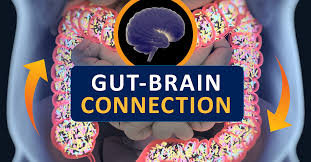
Breaking News
 O'KEEFE INFILTRATES DAVOS WORLD ECONOMIC FORUM
O'KEEFE INFILTRATES DAVOS WORLD ECONOMIC FORUM
 We're Better Than We Think We Are
We're Better Than We Think We Are
 Mike Benz reminds MAGA who the REAL enemy is. And it's our fault…
Mike Benz reminds MAGA who the REAL enemy is. And it's our fault…
Top Tech News
 The day of the tactical laser weapon arrives
The day of the tactical laser weapon arrives
 'ELITE': The Palantir App ICE Uses to Find Neighborhoods to Raid
'ELITE': The Palantir App ICE Uses to Find Neighborhoods to Raid
 Solar Just Took a Huge Leap Forward!- CallSun 215 Anti Shade Panel
Solar Just Took a Huge Leap Forward!- CallSun 215 Anti Shade Panel
 XAI Grok 4.20 and OpenAI GPT 5.2 Are Solving Significant Previously Unsolved Math Proofs
XAI Grok 4.20 and OpenAI GPT 5.2 Are Solving Significant Previously Unsolved Math Proofs
 Watch: World's fastest drone hits 408 mph to reclaim speed record
Watch: World's fastest drone hits 408 mph to reclaim speed record
 Ukrainian robot soldier holds off Russian forces by itself in six-week battle
Ukrainian robot soldier holds off Russian forces by itself in six-week battle
 NASA announces strongest evidence yet for ancient life on Mars
NASA announces strongest evidence yet for ancient life on Mars
 Caltech has successfully demonstrated wireless energy transfer...
Caltech has successfully demonstrated wireless energy transfer...
 The TZLA Plasma Files: The Secret Health Sovereignty Tech That Uncle Trump And The CIA Tried To Bury
The TZLA Plasma Files: The Secret Health Sovereignty Tech That Uncle Trump And The CIA Tried To Bury
Can Lowering Inflammation Help Major Depression?

Story at-a-glance
New research data adds to mounting evidence that depression is linked to an inflammatory response
Inflammation influences the quality of sleep, metabolism, stress response and the release of cytokines
Antidepressant medications are associated with significant and dangerous side effects, including violence, aggression and suicide
The senior population is especially vulnerable; the rate of antidepressant drug prescriptions for this group has doubled since 1990, increasing the risk of cognitive decline, dementia, osteoporosis, Type 2 diabetes and heart disease
Effective nonpharmacological options for treatment include exercising, reducing sugar intake, and using light therapy for 30 minutes each day
It is estimated that 7.1% of the adult population in the U.S. experienced at least one major depressive episode in 2017. The highest rates are among those ages 18 to 25 years. Many people believe depression is caused by a chemical imbalance in the brain. This is a theory that has been widely promoted by drug companies and psychiatrists, to the point it is now accepted as fact.
However, this is just a theory and, worse, it's a theory that has been largely discredited. The idea spread quickly after it was proposed in the 1960s when it appeared antidepressant drugs altered brain chemicals. In the 1980s, Prozac (fluoxetine) was released by Eli Lilly and heavily promoted to balance brain chemicals and affect depression.
Prozac had fewer side effects than some of the earlier antidepressants and soon became the poster child for selective serotonin reuptake inhibitor (SSRI) class of antidepressants. However, while heavily prescribed, data repeatedly showed SSRIs worked no better than placebos for those experiencing mild to moderate depression.
Although antidepressants don't effectively treat depression, they do double the risk of harm from suicide and violence in healthy adults and increase aggression in children and adolescents.
Researchers also suggest major depression could be vastly overdiagnosed and overtreated with antidepressants. The majority who are prescribed these drugs end up staying on them long-term, which may compromise their health.
More Studies Link Depression to Inflammation
Researchers have found yet another link between inflammation and depression. In one study1 published in the Journal of Neurology, Neurosurgery & Psychiatry, researchers systematically reviewed the safety and effectiveness of anti-inflammatory agents in people suffering with major depression.
The literature review included results from 30 randomized control trials with a 1,610 participants. In an overall analysis of 26 studies, the researchers found anti-inflammatory agents reduced depressive disorder when compared with placebo. They found no differences in quality of life analysis but did find gastrointestinal event differences between the treatment periods.
A subanalysis of the data demonstrated an adjunctive treatment with antidepressants with nonsteroidal anti-inflammatory drugs, statins, omega-3 FAs and minocycline significantly reduced depressive symptoms.2
Results from another large metanalysis3 carried out by researchers from Aarhus University Hospital in Denmark revealed similar findings, showing anti-inflammatories may be effective in the treatment of depression. One researcher explains the study showed the combination of anti-inflammatory drugs along with antidepressants have beneficial effects.
The results also showed the effect against depression was present when the anti-inflammatory medication was used alone, compared against a placebo. The scientists analyzed 36 international studies of participants who suffered from depression or who had symptoms of depression. One of the researchers, Dr. Ole Köhler-Forsberg, commented on the results of the study:4
"This definitely bolsters our chances of being able to provide personalised treatment for individual patients in the longer term. Of course we always have to weigh the effects against the potential side-effects of the anti-inflammatory drugs.
We still need to clarify which patients will benefit from the medicine and the size of the doses they will require. The findings are interesting, but patients should consult their doctor before initiating additional treatment."
Yet in another recently published study in Molecular Psychiatry5 scientists found patients treated with immunotherapeutics for inflammatory disorders, who also presented with depression or depressive symptoms, experienced symptomatic relief. The team found the reduction in depressive symptoms was not associated with any treatment-related changes in their physical health.

 A Report from Middle America
A Report from Middle America
 Nano Nuclear Enters The Asian Market
Nano Nuclear Enters The Asian Market


